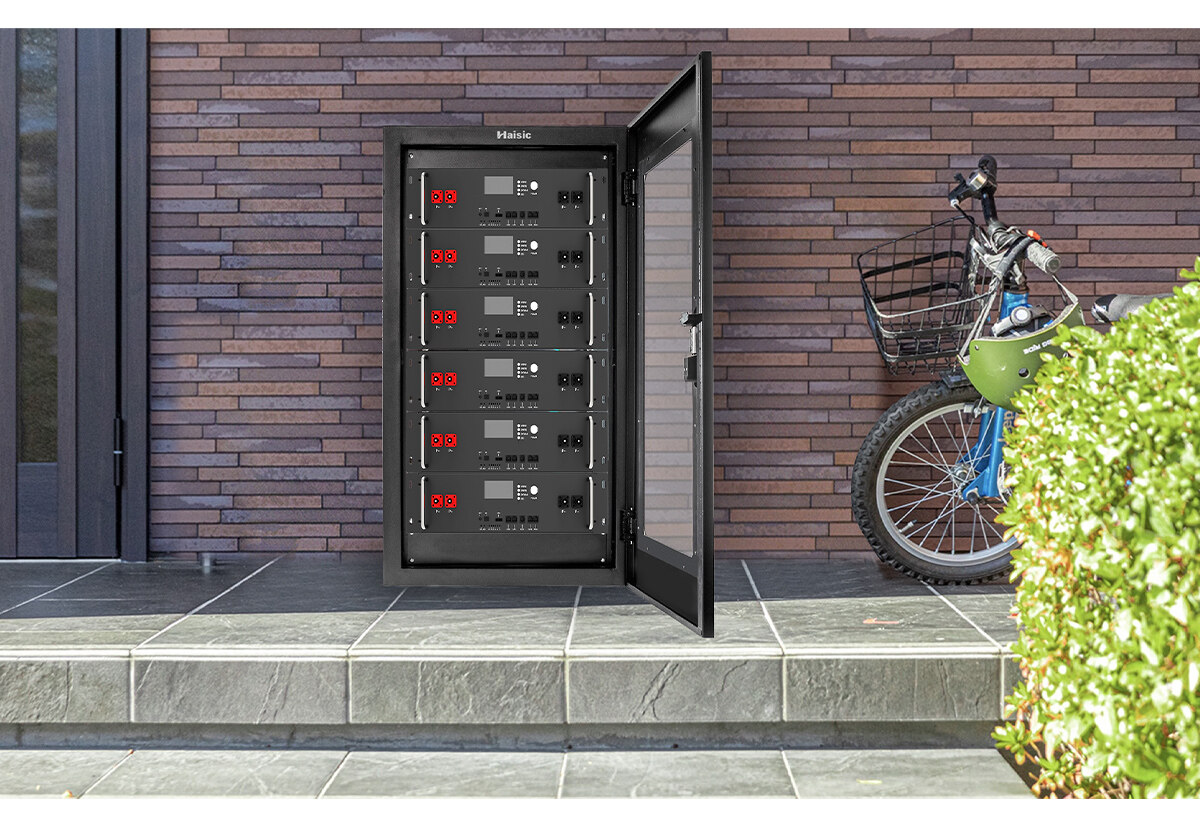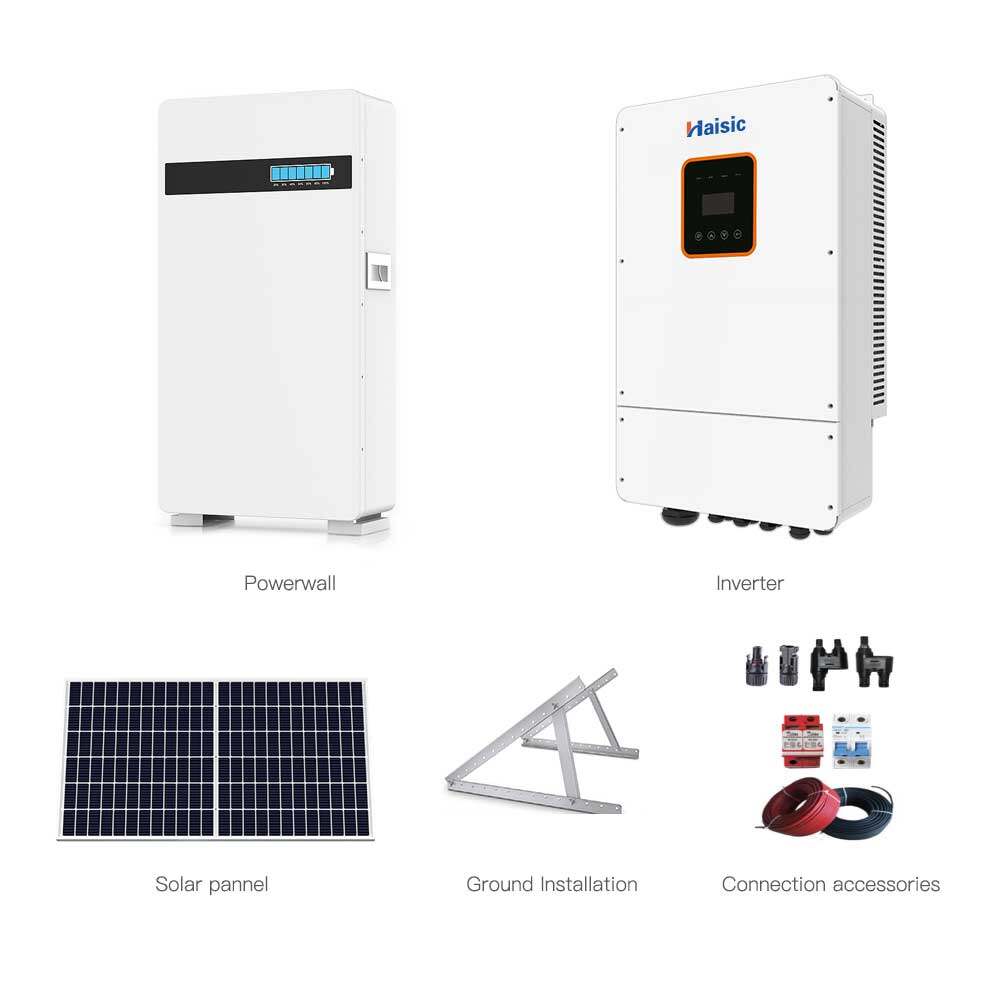Email format error
Email cannot be empty
Email already exists
6-20 characters(letters plus numbers only)
The password is inconsistent
Email format error
Email cannot be empty
Email does not exist
6-20 characters(letters plus numbers only)
The password is inconsistent


As the world continues to shift toward sustainable energy solutions, many homeowners are seeking ways to reduce their reliance on traditional power grids. With rising electricity costs and growing concerns over climate change, energy independence has become more appealing than ever. Residential off-grid solar photovoltaic and energy storage systems offer a compelling solution, enabling homeowners to generate and store their own power, free from the constraints of public utilities. Imagine the freedom of living without power outages or monthly utility bills—this is the future of energy, and it's available now.
In recent years, the demand for residential off-grid solar photovoltaic and energy storage systems has surged. More people are looking to solar energy as a sustainable and cost-effective alternative to traditional electricity. Off-grid systems allow homeowners to produce their own energy, ensuring a constant supply even during grid failures or extreme weather conditions. For those living in remote areas, these systems provide a reliable power source where access to the grid may be limited or unavailable.
Energy Independence:
One of the most significant advantages of going off-grid is complete independence from utility companies. You're no longer affected by rate hikes, power outages, or grid failures.
Environmental Impact:
By using solar energy, you are significantly reducing your carbon footprint. Solar power is clean, renewable, and abundant, making it an environmentally friendly energy solution.
Cost Savings:
While the initial investment in solar panels and energy storage systems may seem high, the long-term savings are substantial. Without monthly energy bills, your system pays for itself over time.
Sustainability:
Off-grid systems are a sustainable solution for powering homes and are particularly appealing to those who want to live a more eco-friendly lifestyle.
A residential off-grid solar photovoltaic and energy storage system consists of several key components that work together to generate and store electricity for a home. These components include:
The solar panels, also known as photovoltaic modules, are responsible for converting sunlight into electricity. These panels are typically installed on the roof of the home where they receive maximum sunlight exposure throughout the day. They generate direct current (DC) electricity, which needs to be converted into alternating current (AC) by an inverter for home use.
Inverters play a crucial role in the system by converting the DC electricity generated by the solar panels into AC electricity. AC electricity is what powers most household appliances and devices. High-quality inverters ensure that the electricity generated is stable and safe for home use.
Energy storage systems are what allow off-grid solar systems to function independently from the grid. During the day, excess electricity generated by the solar panels is stored in batteries. This stored energy can then be used during the night or on cloudy days when the solar panels may not generate enough electricity. Lithium-ion batteries are the most common type used in residential off-grid solar photovoltaic and energy storage systems due to their efficiency, longevity, and energy density.
Charge controllers are essential in managing the flow of electricity between the solar panels, the batteries, and the home. They ensure that the batteries are not overcharged, which could damage them, and that energy is distributed efficiently.
Before investing in an off-grid solar photovoltaic and energy storage system, it's important to assess your household’s energy needs. This includes calculating how much electricity you use on a daily basis and understanding peak energy consumption times. A well-designed system will be able to meet these needs without over- or under-producing energy.
Start by evaluating how much electricity your household uses. Look at your utility bills from the past year to understand your average monthly consumption. This will help you determine the size and number of solar panels you’ll need to meet your energy requirements.
Next, calculate the number of peak sunlight hours your location receives. This will influence the energy production of your solar panels. For instance, homes in sunny regions like California will generate more energy compared to homes in cloudier areas.
Choosing the right components is essential for building an efficient off-grid system. Ensure that your solar panels are of high quality and capable of withstanding harsh weather conditions. Opt for reliable batteries that have a long lifespan and can store enough energy to power your home during low-production periods.
Combining solar panels with energy storage systems provides homeowners with numerous advantages. Without storage, excess electricity generated during the day would be wasted, as it wouldn't be available when the sun isn't shining. Batteries allow you to store this surplus energy and use it when needed, ensuring a consistent and reliable power supply.
Energy storage systems help you maximize the efficiency of your solar system by ensuring that none of the energy produced goes to waste. You can use the energy whenever you need it, rather than relying on sunlight.
For homes that experience frequent power outages or those in areas prone to extreme weather events, having an energy storage system ensures that you're never left without power. Batteries provide backup power during outages, allowing critical systems like heating, cooling, and lighting to continue functioning.
While the upfront costs of an off-grid solar photovoltaic and energy storage system may be significant, the long-term savings are undeniable. You'll eliminate electricity bills, increase your home’s value, and enjoy energy independence. Additionally, many countries offer incentives and tax breaks for installing solar systems, further reducing the overall cost.
As more people turn to renewable energy, the future looks increasingly solar-powered. Residential off-grid solar photovoltaic and energy storage systems not only offer a sustainable solution for powering homes but also represent a shift toward self-reliance and environmental stewardship. By generating and storing your own energy, you reduce your carbon footprint, save money, and gain independence from the limitations of the public grid.
Whether you're looking to reduce your electricity bills, avoid power outages, or live more sustainably, off-grid solar systems offer a practical and effective solution. With the right design and components, you can enjoy clean, reliable energy for years to come. The future of energy is here—are you ready to make the switch?